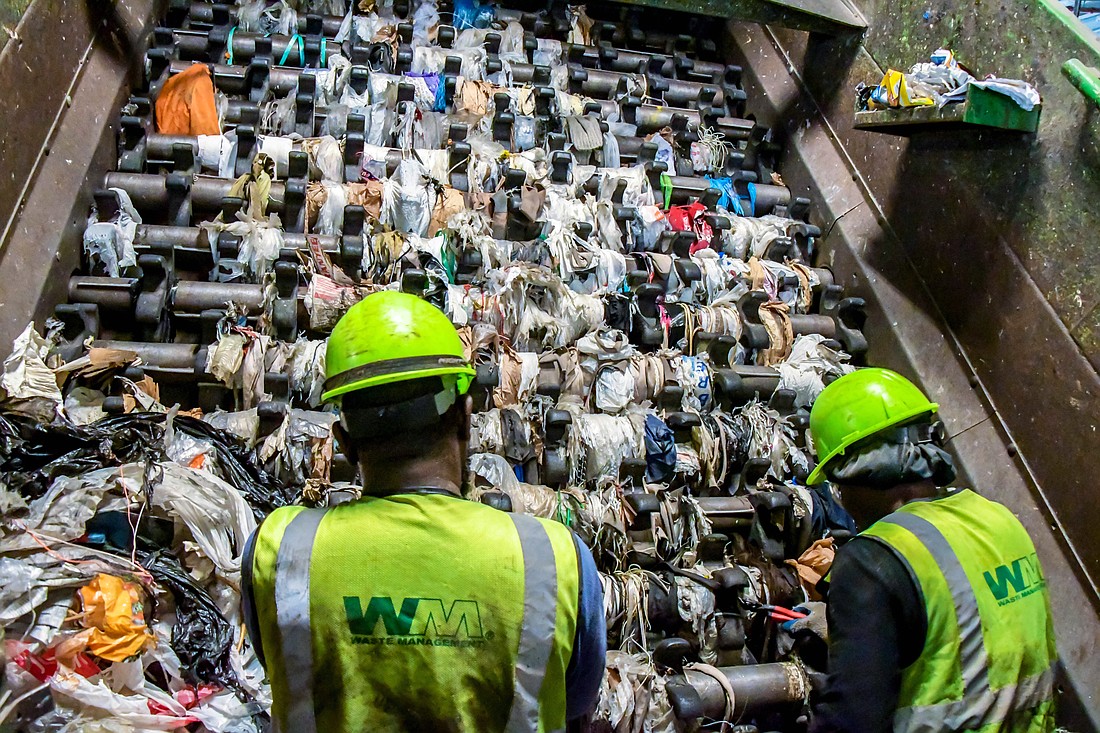- July 26, 2024
-
-
Loading

Loading

After the Chinese government imposed new restrictions last year on imported recyclables, the recycling industry around the world changed, and those impacts have been felt close to home.
At one point, about 45% of the world’s recyclable plastics were sent to China, but that changed when the country passed its National Sword policy in 2017 — which took effect in January 2018 — to help combat climate change. The policy bans 24 types of imported scrap materials and imposes a 0.5% contamination standard for imported recycled plastics, according to NPR.org and wastedive.com.
That contamination standard on plastics has posed as a challenge to the recycling industry as a whole.
“(The) recycling industry standards have changed,” said David Gregory, solid waste manager for Orange County Utilities. “We’ve seen an increase in the volume of recycling but also an increase in the amount of non-recyclable material. China’s stricter contamination limits have challenged all curbside recycling programs, including Orange County’s, to raise the quality of materials collected.”
Although Winter Garden, Ocoee and Orange County still have recycling programs, some of those materials can end up in landfills because of contamination. And that has led to some confusion among residents — many of whom have expressed frustrations on social media.
“(Some residents) have heard that the recyclables are all going to the landfill,” Ocoee Public Works Director Stephen Krug said. “That is not our intention. The goal is that we collect recyclables. … The problem is (recyclables are) required (to have) a 0.5% contamination maximum. We’re not getting that right now.”
Krug added the contamination maximum is difficult to attain, and as a result, many loads of recyclable items have been ending up in landfills. Citing a county study conducted in summer 2018, Krug said Orange County has a high contamination rate for recycling.
One of the biggest causes for contamination has been plastic bags. In some instances, residents sort their plastic, paper and metal recyclables and place them in garbage bags to keep them separated before placing these items into recycle containers. The problem is the garbage bag these recyclable materials are placed in is actually what causes those recyclables to end up in a landfill. Instead, residents should place recyclable materials in recycled containers by themselves without bagging them, Krug said.
“When our guys are dumping loads … they can watch the loads go into the hopper with a camera system,” he said. “When they see garbage go in there — and some people are treating (recycling carts) like garbage cans — we know the load (of recyclables) will be rejected, so it goes right to the landfill. If we dump a load that has, say you’ve got 200 carts of recyclables, one cart of solid garbage … once it’s on the ground, if they see contamination, we won’t take (it).”
Ocoee has a contract with the county for recycling services and pays $47.50 per ton of recyclable materials, but the city didn’t always have to pay for the service, Krug said.
“(Before), the only cost for recycling was the cost of the trucks and the drivers who collected it,” Krug said. “Now we’re actually charged a dump fee, because there is no market for recycling, and that’s a global thing.”
County officials recommend taking plastic bags — such as retail and food-storage bags — to retailers as many retailers collect plastic bags for recycling. If a resident is unsure of whether an item is recyclable, county officials suggest the mantra, “When in doubt, throw it out,” and dispose the item with non-recyclable waste.
“We want to recycle,” Krug said. “I think the biggest think (for residents) to understand is contamination … and what is considered contamination.”
Plastic isn’t the only cause of contamination for recyclables. Food, cleaners, automotive fluids and garden chemicals also are common contaminants. Food-contaminated paper products, such as pizza boxes, are another common cause of recyclables ending up in landfills, Krug said.
“If you have a pizza box that’s greasy from the pizza, they can’t break that down when it’s sent off to be recycled,” he said. “The grease (from the pizza box) just destroys the process.”